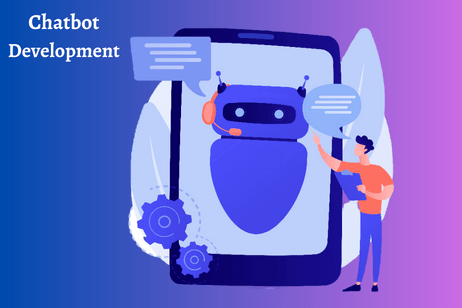Reasons to Use a Chatbot for Your Business
Chatbots are of paramount importance for modern businesses. They offer 24/7 customer support, enhancing user experiences by swiftly addressing queries and issues. By automating repetitive tasks, chatbots reduce operational costs and improve efficiency. They provide valuable data insights, enabling data-driven decision-making and personalized customer interactions. In an increasingly competitive digital landscape, chatbots can set your business apart, offering convenience and engagement, ultimately leading to increased customer satisfaction and business growth.

Features Of Chatbot
Customer Service
Chatbots can provide 24/7 customer service, which is especially helpful for businesses that are open late or have international customers. They can help answer frequently asked questions quickly and easily, freeing up customer service representatives to handle more complex issues. You can program chatbots to understand natural language, so they can have conversations with customers just like a human would.
Market Research
In order to create a chatbot that will be successful, you must first understand your audience. This means conducting market research to learn about their needs, wants, and pain points. Only then can you create a chatbot that will offer them real value. Chatbots streamline the data collection process, making it easier for businesses to make informed decisions based on market research findings.
Improve Conversion Rates
By providing 24/7 availability, chatbots can answer customer questions immediately, without making them wait for a human response. This can help increase conversion rates by providing the answers customers need in order to make a purchase.
Increase Brand Awareness
A chatbot can help increase brand awareness for your business by providing a unique and interactive way for customers to engage with your brand. By being available 24/7, you can reach a wider audience and provide them with information about your products or services at their convenience. Additionally, chatbots can help promote your brand through word-of-mouth by providing satisfied customers with an easy way to share their experience with others.
Track Data
Chatbots can help you track data about your customers, including their preferences and purchase history. This information can be used to improve your marketing and sales strategies. Additionally, chatbots can help you gather feedback from customers about your products or services. This feedback can be used to make necessary changes or improvements to your offerings. Ultimately, using a chatbot can help you boost your bottom line by increasing sales and reducing customer churn.
Task Automation
Task automation features of chatbots enable them to streamline processes and save time for businesses and users. They excel at scheduling appointments, processing orders, filling out forms, and handling various tasks efficiently. Chatbots are valuable tools for businesses looking to automate routine operations, improve customer service, and enhance overall productivity.
FAQ – Frequently Asked Questions
A chatbot is a computer program designed to simulate human conversation. It uses artificial intelligence (AI) and natural language processing (NLP) to understand user inputs and provide responses.
Chatbots can improve customer service, automate repetitive tasks, enhance user engagement, reduce operational costs, and provide 24/7 support.
Chatbots can be deployed on websites, mobile apps, messaging apps (e.g., Facebook Messenger, WhatsApp), and even voice assistants like Amazon Alexa and Google Assistant.
Chatbots can be developed using languages like Python, Java, or JavaScript. Common technologies include NLP libraries, chatbot frameworks, and cloud platforms for hosting.
Incorporating interactive elements, personalization, and a conversational tone can make chatbots more engaging and user-friendly.
Yes, chatbots can be developed to support voice interactions, making them compatible with voice assistant platforms like Amazon Alexa, Google Assistant, and Microsoft Cortana.
Rule-based chatbots follow predefined scripts and rules, while AI-powered chatbots leverage machine learning and NLP to understand and respond to user inputs more flexibly.
Yes, chatbots can generate real-time analytics and reports that provide insights into user interactions, frequently asked questions, and areas for improvement.
Yes, chatbots can engage with website visitors, answer product inquiries, and even capture leads by qualifying prospects and scheduling appointments.
Best practices include starting with a clear purpose, conducting user testing, providing clear instructions, ensuring data privacy, and continuously refining the chatbot’s capabilities.